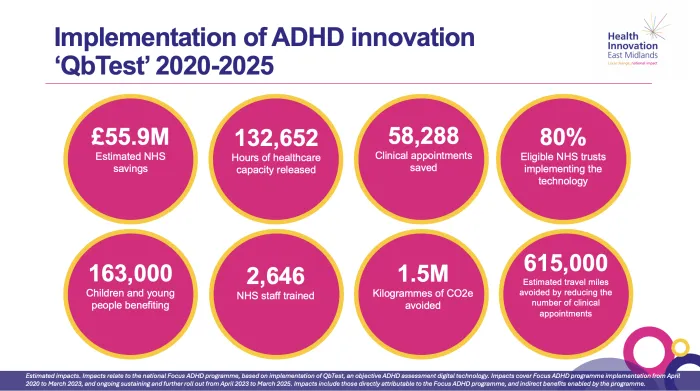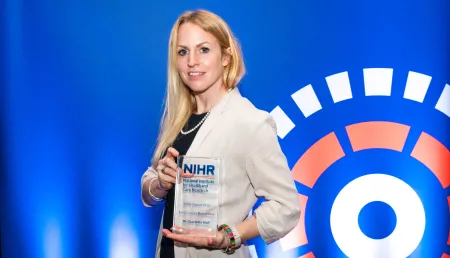
Attention Deficit Hyperactivity Disorder (ADHD) affects around 5% of school-aged children in the UK. Traditionally, diagnosis required multiple clinic visits and long waits, costing the NHS an estimated £23 million each year.
A pioneering test which is proven to speed up the diagnosis of ADHD in children and young people is now being used by the NHS after successful trials took place in the East Midlands.
The ‘QbTest’ is a computer-based assessment which measures characteristics of ADHD. When used alongside existing clinical assessment, QbTest enables clinicians to reach diagnostic decisions 44% faster, with greater confidence and no loss of accuracy.
The tool, developed by Qbtech, was trialled by the ARC East Midlands and supported by the NIHR HealthTech Research Centre in Mental health (MindTech). It was piloted within three mental health trusts by Health Innovation East Midlands, before being rolled out nationally by the wider Health Innovation Network.
Key impacts
- £55.9 million estimated NHS savings have been achieved
- 132,652 hours of healthcare capacity has been released
- 58,288 clinical appointments have been saved
- 80% all of NHS trusts implementing the technology
- 163,000 children and young people have benefited
- 2,646 NHS staff trained
- 1.5 million kilogrammes of CO2e avoided
- 615,000 estimated travel miles avoided by reducing the number of clinical appointments
- 1 million patients have since benefited globally from the QbTest
For a visual summary of these achievements, click on the infographic below.

The research won an NIHR Impact Prize in 2025 – presented to early-career researcher Dr Charlotte Hall who also holds an NIHR Development and Skills Enhancement Award.
This East Midlands collaboration shows how partnership-driven innovation can lead to more efficient and effective healthcare solutions.



